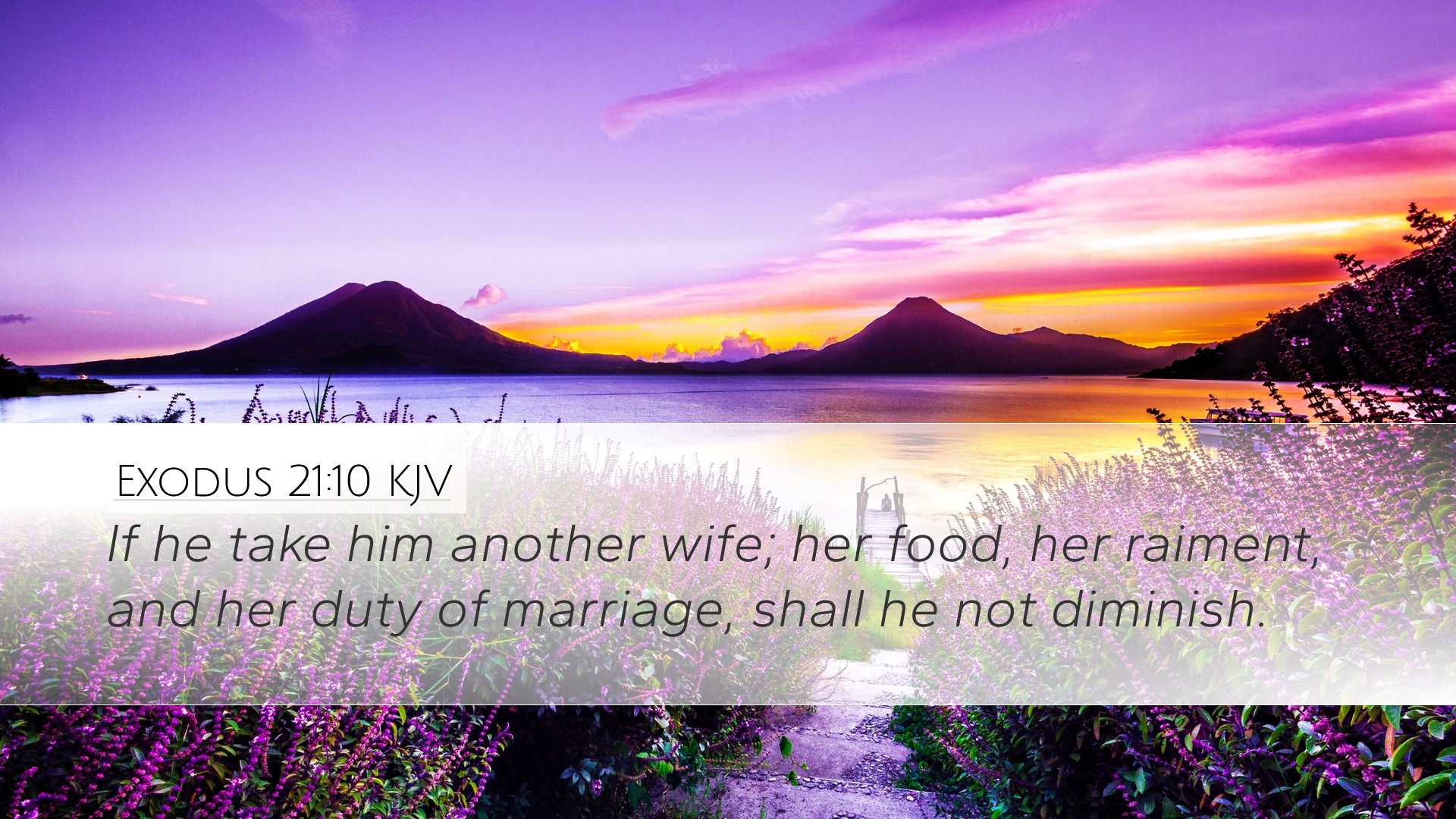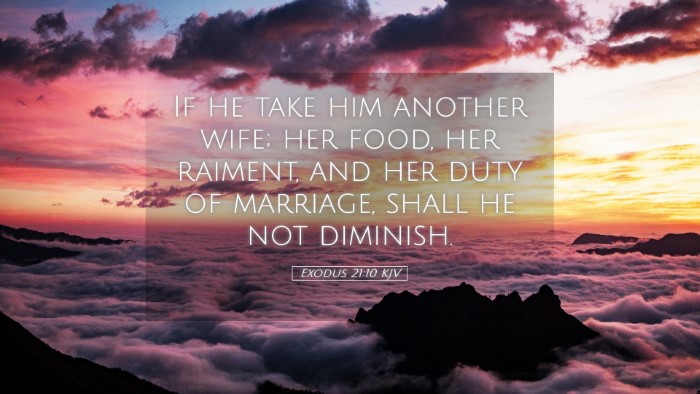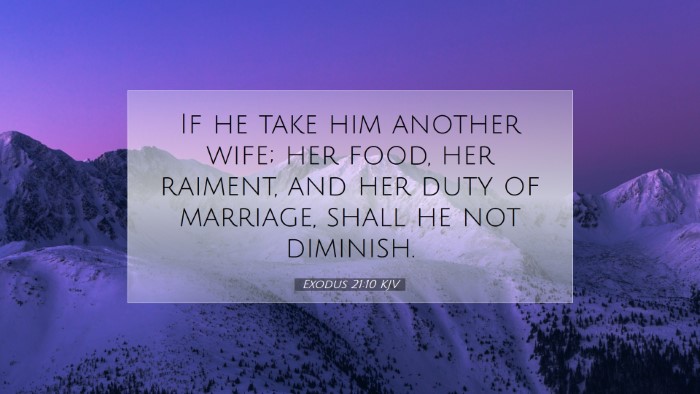Exodus 21:10 - Commentary Overview
Exodus 21:10 states: "If he take him another wife; her food, her raiment, and her duty of marriage, shall he not diminish." This verse provides insight into the moral and ethical framework regarding marriage and relationships, reflecting the concerns for justice and responsibility that are central to the Mosaic Law.
Contextual Background
In understanding this verse, it is crucial to appreciate the historical context of the ancient Near Eastern culture, where polygamy was practiced. This legal stipulation aims to protect the rights and welfare of the first wife in light of the husband's potential marriage to another woman.
Insights from Matthew Henry
Matthew Henry emphasizes that this verse highlights God's intention for marriage as a covenant relationship. He asserts that while a man might take another wife, he is still obliged to fulfill his responsibilities to the first wife, particularly regarding her sustenance and marital rights. Henry notes that neglecting these duties would be a serious injustice and contrary to the spirit of the covenant that is central to biblical ethics.
Furthermore, Henry stresses that this guideline reflects God's care for the welfare of individuals, ensuring that women are not left destitute or deprived due to the man's choices. It shows the heart of God focusing on justice and provision.
Insights from Albert Barnes
Albert Barnes provides a detailed analysis of the term "duty of marriage," interpreting it as encompassing the physical, emotional, and spiritual responsibilities owed to a wife. He points out that this verse establishes a baseline for marital obligations, ensuring that even in the event of polygamy, the first wife retains her rights. Barnes discusses the broader implications for family and community life, asserting that order in the household is vital for social stability.
Barnes also explains the socio-economic context behind such laws, recognizing that the welfare of women and families was paramount in a society that could easily marginalize them. He highlights that the law serves to protect women from being treated merely as property.
Insights from Adam Clarke
Adam Clarke approaches this verse from a linguistic and cultural perspective. He points out that the Hebrew terms imply a mutual obligation in marriage, and Clarke emphasizes that the husband must uphold justice and compassion. He explains that the ethical implications of this law encourage mutual respect and an understanding of the marital relationship as a partnership.
Moreover, Clarke notes that this directive serves as a corrective measure for a societal tendency towards oppression. It ensures that a woman, even within the confines of a polygamous arrangement, has her needs met and maintains her dignity.
Theological Implications
This directive can be seen as an early reflection of the principles found later in the New Testament regarding marriage and treatment of spouses. The emphasis on love, care, and respect resonates with the teachings of Christ, who elevated the status of women and provided a radical reformation of how relationships should be conducted.
Conclusion
In summary, Exodus 21:10 serves as a critical text that illustrates the value placed on marital fidelity, justice, and the dignity of women within biblical law. The commentaries from Matthew Henry, Albert Barnes, and Adam Clarke illuminate this verse's significance, making it relevant for ministers, theologians, and students of scripture today. It emphasizes the moral obligations in relationships and the heart of God for justice and mercy within human interactions.


